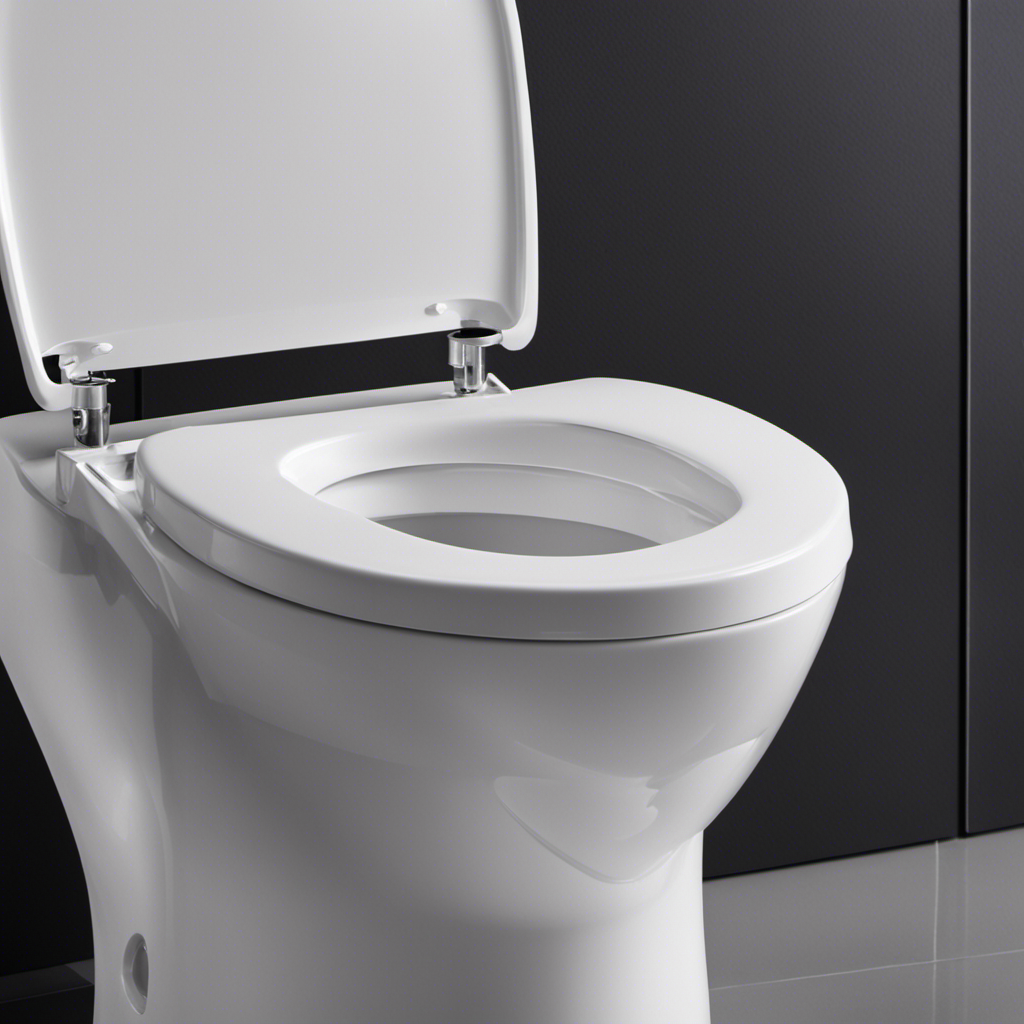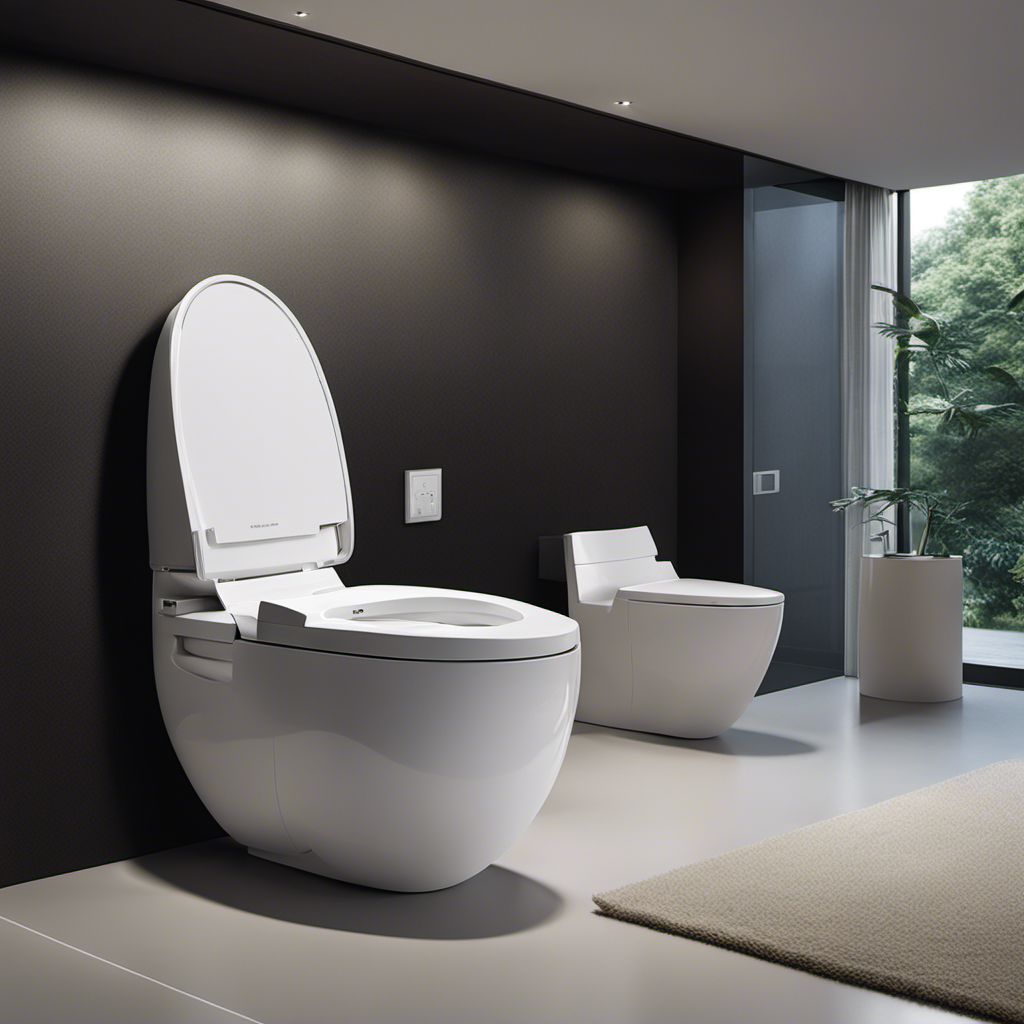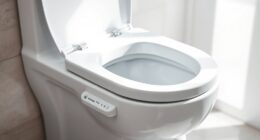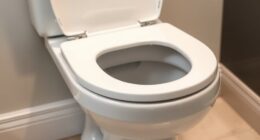Are you wondering if it’s safe to flush cat poop down the toilet? We’ve got the answers you need.
In this article, we’ll explore the environmental impact and health risks associated with flushing cat poop, as well as provide alternatives and proper disposal methods.
Before you make that flush, it’s important to consider the potential consequences.
Stay informed and make responsible choices when it comes to the disposal of cat waste.
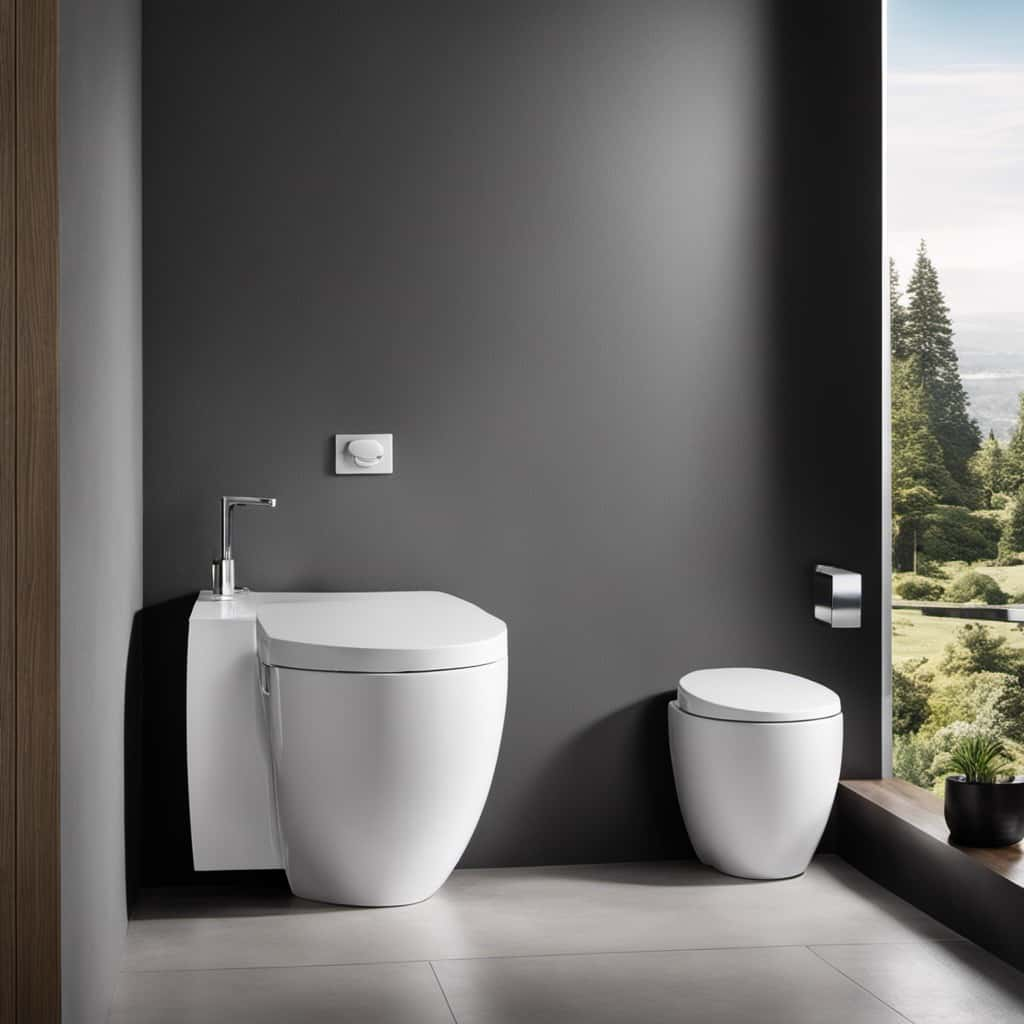
Key Takeaways
- Flushing cat poop can contribute to marine pollution, introducing harmful bacteria, parasites, and nutrients into water bodies.
- Flushing cat poop poses potential health risks for humans and animals, including the risk of toxoplasmosis and water contamination.
- There are alternatives to flushing cat poop down the toilet, such as bag and trash disposal, composting, pet waste systems, and biodegradable litter.
- Proper disposal methods for cat poop include composting in a separate bin, as not all composting methods are suitable, and consulting with local waste management authorities for guidance.
Environmental Impact of Flushing Cat Poop
When it comes to the environmental impact of flushing cat poop, we need to consider the long-term consequences.
Flushing cat poop down the toilet can contribute to marine pollution and pose challenges for water treatment. Marine pollution from cat poop flushing occurs when the waste enters water bodies, such as rivers and oceans, and introduces harmful bacteria, parasites, and nutrients. These pollutants can have detrimental effects on aquatic life and ecosystems.
Additionally, water treatment facilities face challenges in effectively removing and treating cat poop waste. The presence of pathogens and contaminants in cat poop can strain the treatment process, potentially leading to inadequate treatment and the release of harmful substances into the environment.
It’s crucial to explore alternative and responsible methods of cat poop disposal to minimize these environmental impacts.
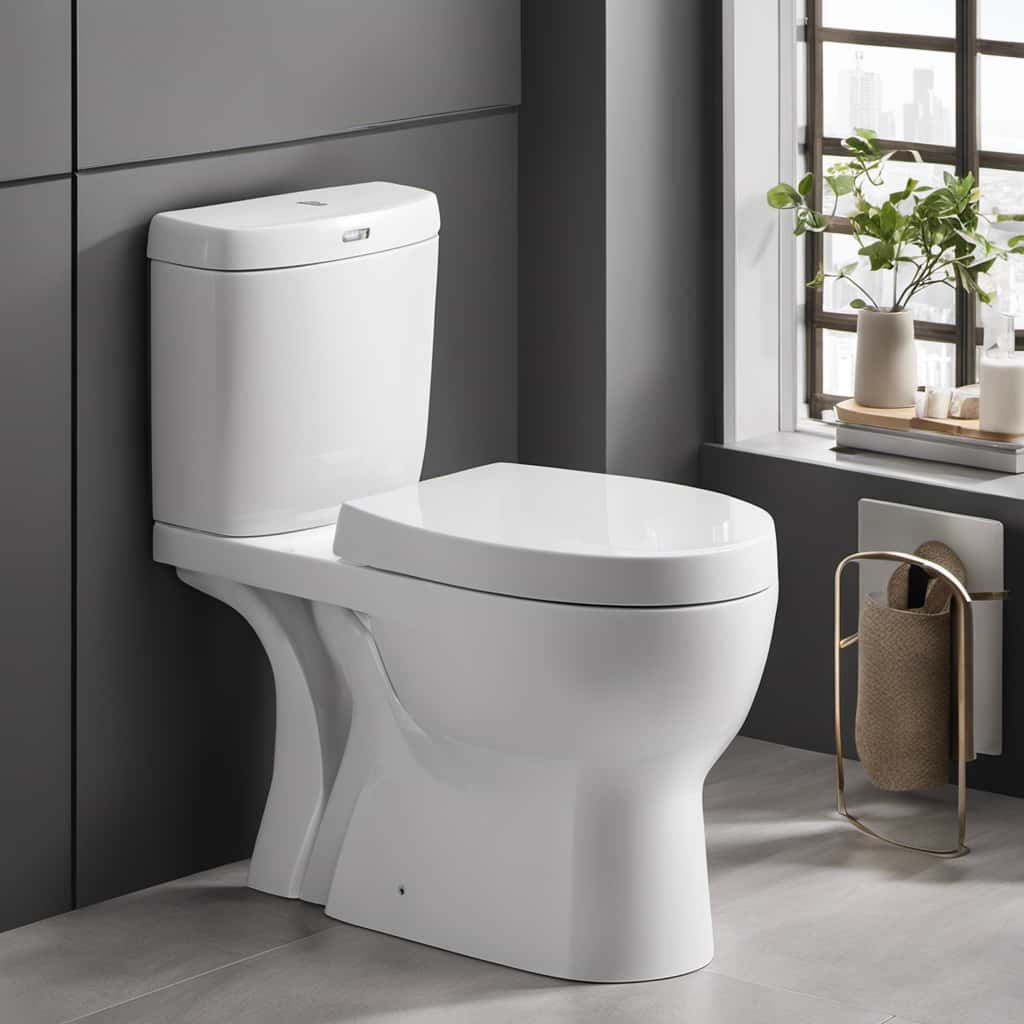
Health Risks Associated With Flushing Cat Poop
Flushing cat poop down the toilet poses potential health risks for us and our environment.
One of the main dangers associated with flushing cat poop is the risk of toxoplasmosis. Toxoplasmosis is a parasitic infection caused by a microscopic organism called Toxoplasma gondii, which is commonly found in cat feces. If this contaminated water enters our water supply, it can pose a risk to human health.
Additionally, flushing cat poop can lead to water contamination. The waste can contain harmful bacteria and viruses that can contaminate water sources, potentially causing illnesses in humans and animals.
It’s important to remember that flushing cat poop down the toilet isn’t a safe disposal method and can have serious consequences for both our health and the environment.
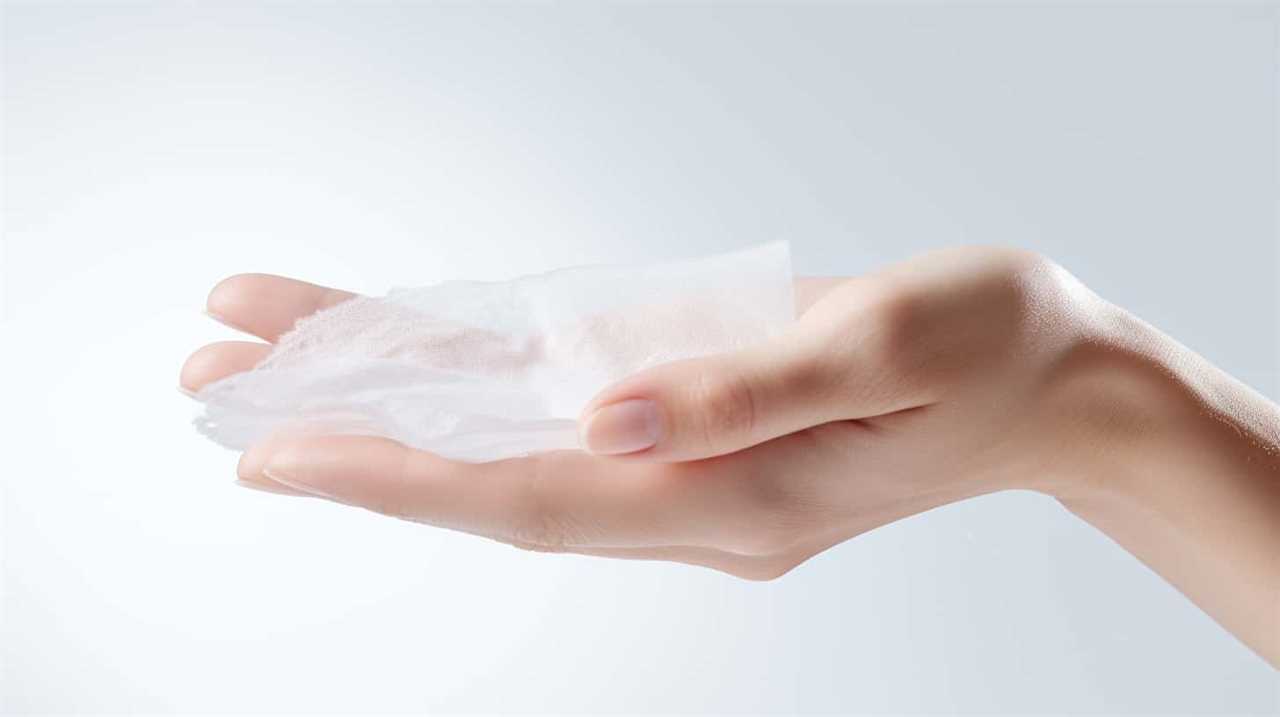
Alternatives to Flushing Cat Poop Down the Toilet
To ensure the safety of our health and environment, we should consider alternative methods for disposing of cat poop rather than flushing it down the toilet. While flushing may seem convenient, it can pose risks to our plumbing system and contaminate our water sources. Here are some alternatives to consider:
| Method | Pros | Cons |
|---|---|---|
| Bag and trash | Simple and convenient solution | Non-biodegradable bags contribute to landfill waste |
| Composting | Creates nutrient-rich soil for gardening | Requires a dedicated composting area and proper maintenance |
| Pet waste system | Specially designed systems that break down waste naturally | Installation may be costly and require professional assistance |
| Biodegradable litter | Environmentally friendly option that can be composted | Some cats may not adapt to the new litter texture |
Proper Disposal Methods for Cat Poop
To properly dispose of cat poop, we should explore various methods that are safe for both our health and the environment.
When it comes to disposing of cat waste, composting options are a great choice. Cat poop can be composted in a separate compost bin, away from other compost materials. This process allows the waste to decompose naturally, turning it into nutrient-rich soil that can be used in gardens or flower beds.
However, it’s important to note that not all composting options are suitable for cat waste. Some composting methods may not reach the necessary temperature to kill potential pathogens in the feces.

Additionally, it’s crucial to be aware of sewer system limitations. Flushing cat poop down the toilet can overload the system and lead to environmental issues.
It’s best to consult with local waste management authorities to determine the most appropriate disposal methods for cat poop in your area.
Considerations Before Flushing Cat Poop
Before considering flushing cat poop down the toilet, we need to take into account several important factors.
Flushing cat poop can have potential septic tank concerns and affect municipal wastewater treatment. Septic tanks are designed to process human waste and household water, but they may not handle the additional load of cat feces. The bacteria in cat poop can disrupt the delicate balance of the septic system, leading to clogs, backups, and costly repairs.
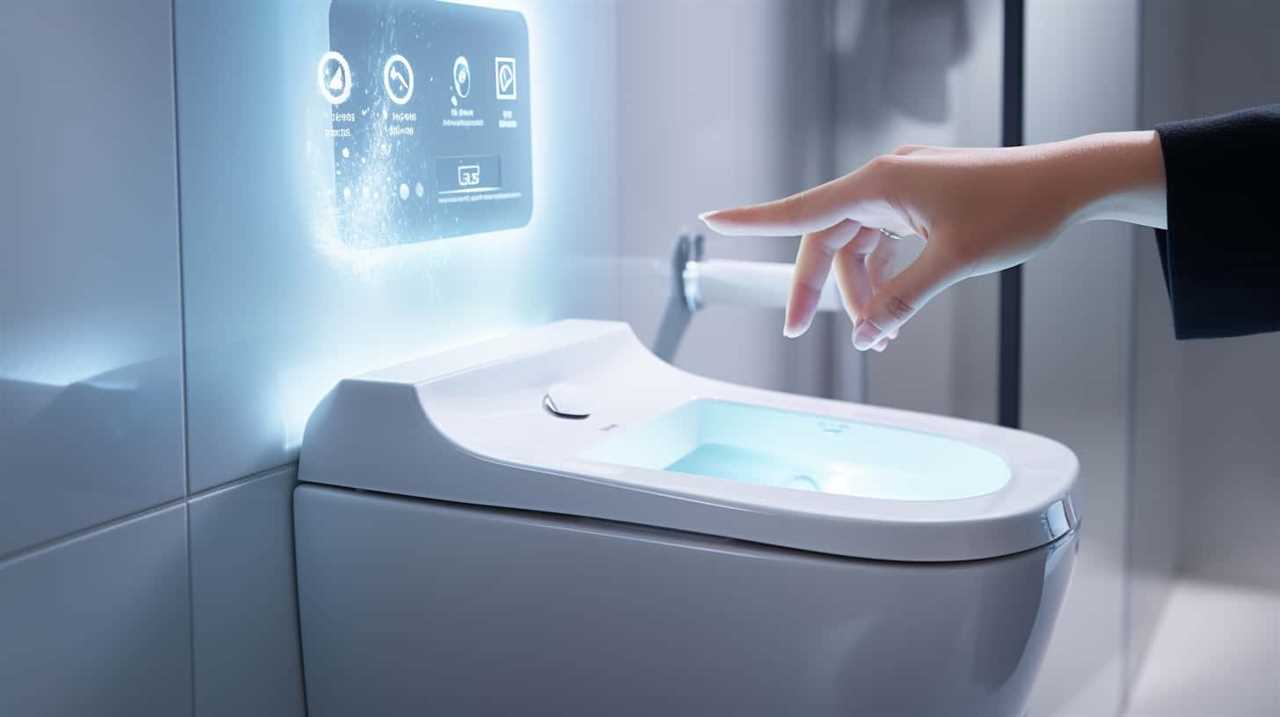
Municipal wastewater treatment plants are equipped to handle human waste and some types of organic matter, but they may not be able to effectively treat the pathogens present in cat poop. Flushing cat poop can also contribute to environmental pollution if not properly treated.
Therefore, it’s crucial to consider these concerns and explore alternative disposal methods for cat poop.
Frequently Asked Questions
Can I Flush Cat Litter Down the Toilet Along With Cat Poop?
Flushing cat litter and poop down the toilet can have negative environmental impacts. It’s safer to dispose of cat waste in the trash, using bags designed for pet waste.
Is It Safe to Flush Cat Poop if I Use Biodegradable Cat Litter?
Yes, it’s important to consider the safety of flushing cat poop, especially if using biodegradable litter. There are flushable cat litter alternatives and eco-friendly ways to dispose of cat waste that are worth exploring.

Can Flushing Cat Poop Down the Toilet Contaminate the Water Supply?
Flushing cat poop down the toilet can pose potential health risks and have a negative environmental impact. It may contaminate the water supply, so it’s best to dispose of it in a more appropriate manner.
What Are the Potential Risks of Flushing Cat Poop for Septic Systems?
Flushing cat poop down the toilet poses potential risks to septic systems. It can lead to clogs, damage to the plumbing, and contamination of groundwater. Additionally, the environmental impact of flushing pet waste is a concern.
Are There Any Specific Toilet Flushing Guidelines to Follow When Disposing of Cat Poop?
When it comes to disposing of cat poop, it’s important to consider toilet flushing alternatives. Flushing cat poop down the toilet may have negative environmental impacts. Follow specific toilet flushing guidelines for proper disposal.
Conclusion
In conclusion, it isn’t safe to flush cat poop down the toilet. Not only does it have negative environmental impacts, but it also poses health risks.
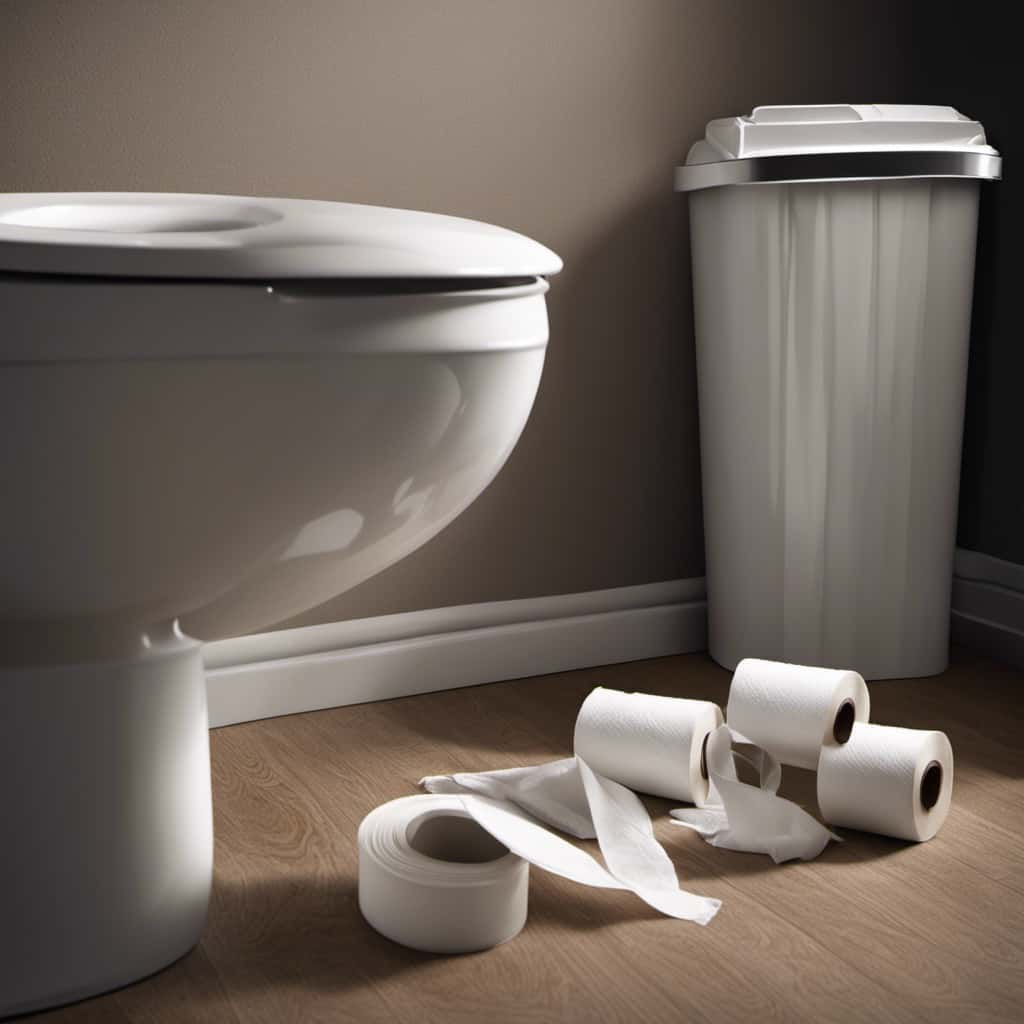
Instead, consider alternatives such as burying it in the backyard or using biodegradable litter. Proper disposal methods are important to prevent contamination and protect our water sources.
Remember, when it comes to cat poop, flushing isn’t the way to go. It’s time to kick that habit to the curb!



